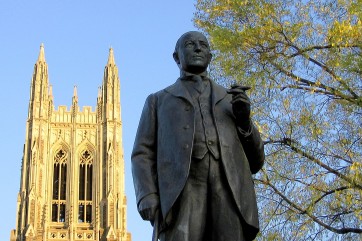A graduate student at the University of Florida has designed a clever, inexpensive test to confirm Alzheimer's diagnoses, according to the school's press release.
If patients had difficulty smelling peanut butter in one nostril over the other, they most likely had the disease, graduate student Jennifer Stamps and her colleagues discovered.
Stamps first came up with the idea when she noticed doctors were neglecting a key symptom of Alzheimer's victims: scent. Smelling is linked to the first cranial nerve, which is impaired by cognitive disease, as per the study. Stamps' work with Professor William P. Bushnell, director of human research in the Center for Smell and Taste, may have also triggered her resourceful test.
'If you can come up with something quick and inexpensive, we can do it,'" Dr. Kennth Heilman told Stamps.
The sample for the smell taste could have been a variety of substances, as long as it was a "pure odorant" -- which is only detected by the olfactory nerve, according to the study. Peanut butter was the first and most convenient pure odorant Stamps could think of.
All participants of the test either had Alzheimer's or another form of cognitive impairment . Patients were instructed to close their eyes and mouth and block one nostril while a ruler with peanut butter passed their nose.
Patients in the early stages of Alzheimer's showed dramatic differences between their left and right nostrils; participants with other forms of cognitive impairments demonstrated no differences. Of the 24 patients who potentially had Alzheimer's, 10 reported differences in left and right nostrils; leading Stamps to believe the test could one day be used as a predictor for Alzheimer's rather than a confirmation.
"At the moment, we can use this test to confirm diagnosis," Stamps said. "But we plan to study patients with mild cognitive impairment to see if this test might be used to predict which patients are going to get Alzheimer's disease."
Stamps and colleagues also see the test as an alternative for clinics or areas of the world that don't have access to more expensive tests.
Here's the test:








